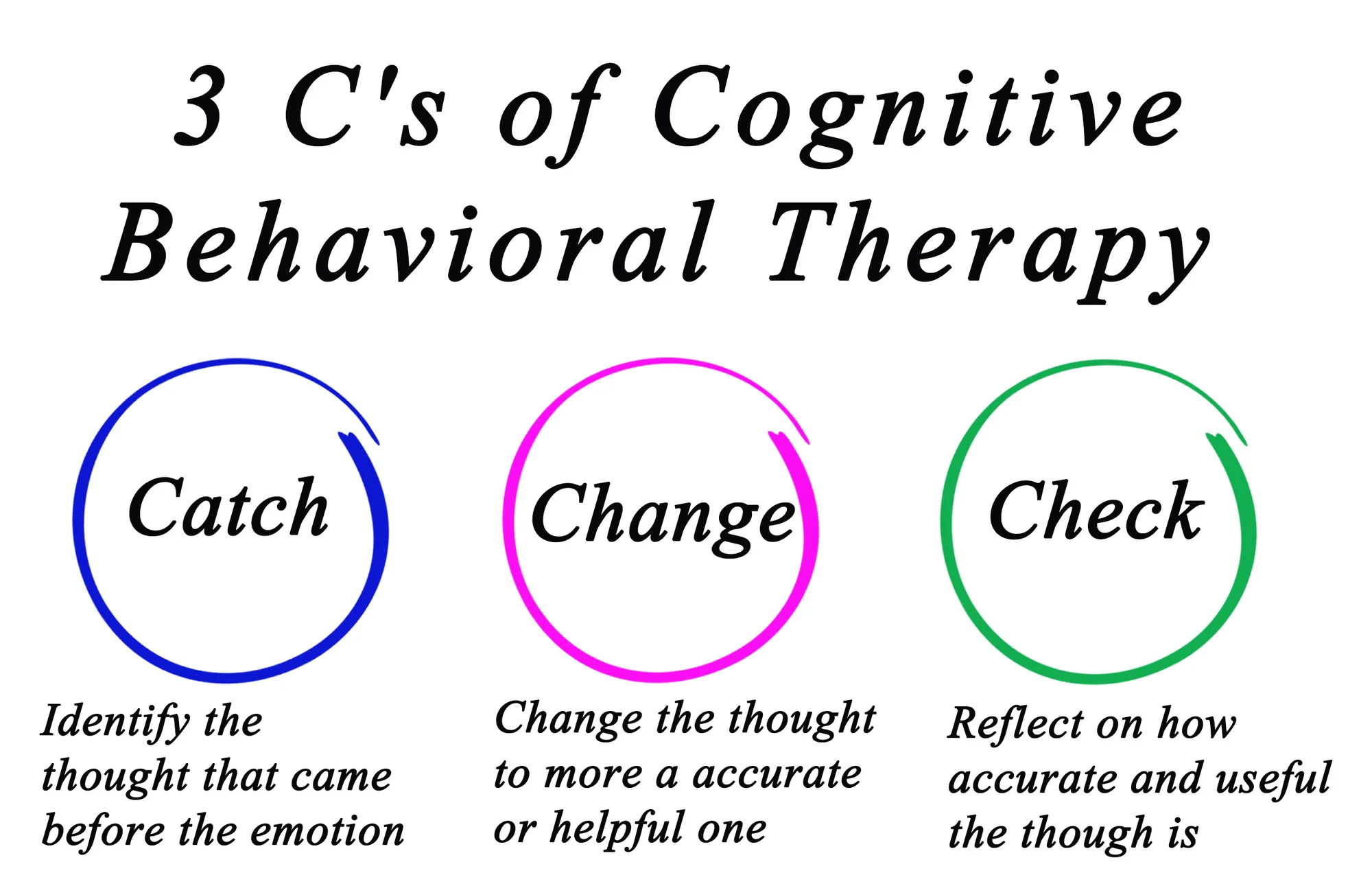How does CBT work?
Cognitive-Behavioural Therapy, is an evidence based and rigorously tested therapy which identifies negative thought patterns creating unwanted feelings, body sensations and behaviours.Together the therapist and client identify and challenge these negative thought patterns and come up with alternative thoughts that lead to more positive feelings and behaviours. As thoughts are changed and new behaviours are practiced, mood and functioning improve and self-confidence increases.

Phase 1
Identifying the sources of negativity.
Individuals work with a therapist to identify patterns of negative thinking and beliefs. During this stage, the therapist and individual examine all possible sources of destructive patterns and negative thoughts contributing to anxiety, depression and other distressful emotions and behaviours.
Phase 2
Becoming mindful of the emotions and beliefs associated with the sources of negativity.
After identifying the sources and origins of the destructive patterns, the next step of CBT is to identify the emotions and beliefs associated with relational, social and environmental factors contributing to unhealthy behaviours.
Phase 3
Recognizing and reframing negative thinking patterns.
The therapist will encourage the client to practice reframing negative thinking patterns and change them into balanced, realistic thoughts. This can only occur after the client fully understand the sources of destructive thinking and behaving patterns, the emotions and beliefs associated with them, and the relational and social factors influencing them.
Phase 4
Practicing positive thinking and personalized coping mechanisms in real-world situations.
Personalized goals are set to manage stress and anxiety and other harmful relational, social and environmental triggers. Clients can expect to practice verbally responding in stressful situations by reframing their thoughts to gain control of their emotions and behaviours. Clients will practice using their personalized coping mechanisms in real-life situations. Coping mechanisms can include self-soothing techniques, positive self-talk, meditation, and engaging in constructive activities.
Contact our Intake Manger, Susan Graham, to learn more about CBT and the therapists available to provide this therapy.

